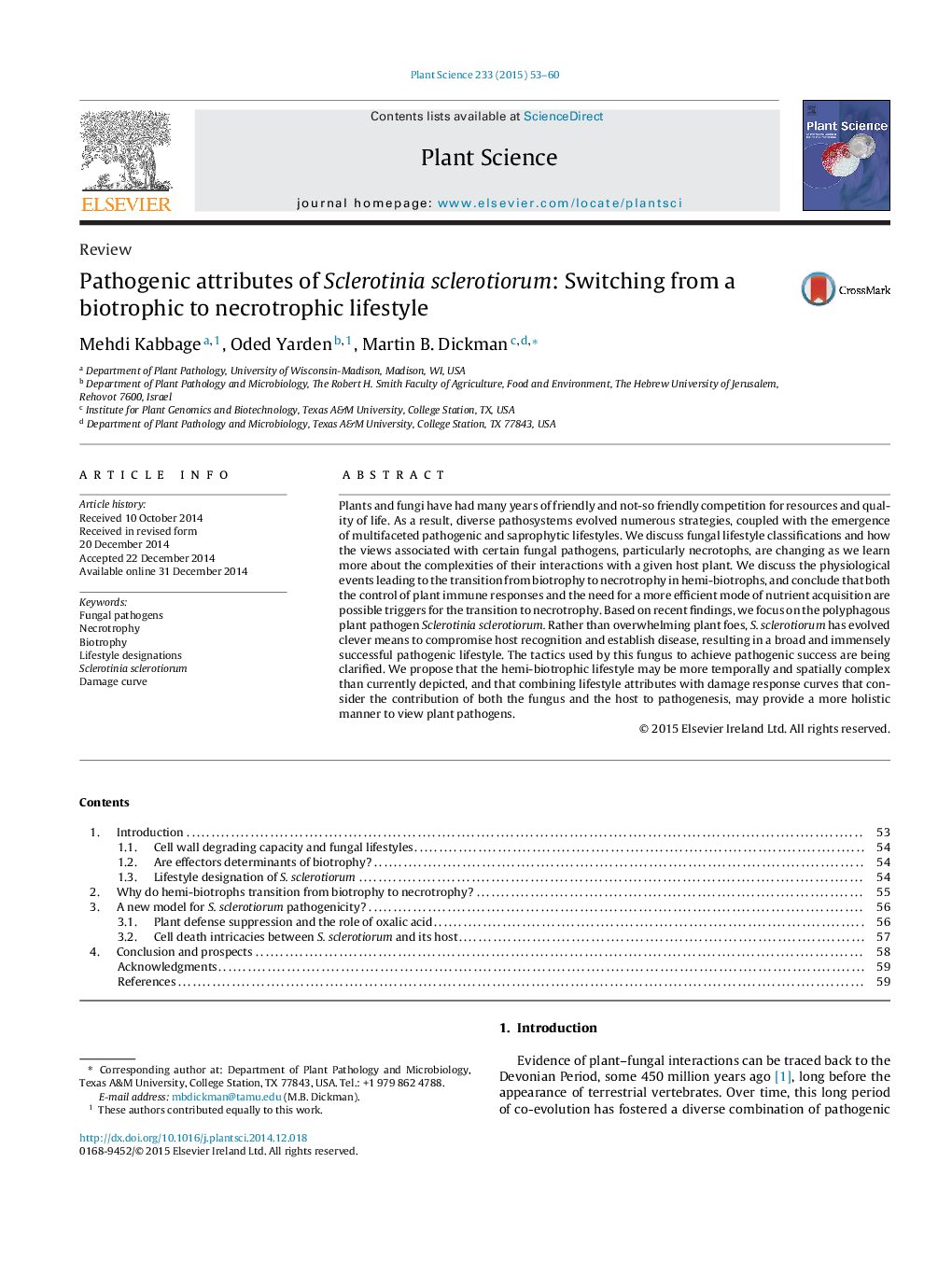| کد مقاله | کد نشریه | سال انتشار | مقاله انگلیسی | نسخه تمام متن |
|---|---|---|---|---|
| 8357839 | 1542056 | 2015 | 8 صفحه PDF | دانلود رایگان |
عنوان انگلیسی مقاله ISI
Pathogenic attributes of Sclerotinia sclerotiorum: Switching from a biotrophic to necrotrophic lifestyle
دانلود مقاله + سفارش ترجمه
دانلود مقاله ISI انگلیسی
رایگان برای ایرانیان
کلمات کلیدی
موضوعات مرتبط
علوم زیستی و بیوفناوری
علوم کشاورزی و بیولوژیک
دانش گیاه شناسی
پیش نمایش صفحه اول مقاله

چکیده انگلیسی
Plants and fungi have had many years of friendly and not-so friendly competition for resources and quality of life. As a result, diverse pathosystems evolved numerous strategies, coupled with the emergence of multifaceted pathogenic and saprophytic lifestyles. We discuss fungal lifestyle classifications and how the views associated with certain fungal pathogens, particularly necrotophs, are changing as we learn more about the complexities of their interactions with a given host plant. We discuss the physiological events leading to the transition from biotrophy to necrotrophy in hemi-biotrophs, and conclude that both the control of plant immune responses and the need for a more efficient mode of nutrient acquisition are possible triggers for the transition to necrotrophy. Based on recent findings, we focus on the polyphagous plant pathogen Sclerotinia sclerotiorum. Rather than overwhelming plant foes, S. sclerotiorum has evolved clever means to compromise host recognition and establish disease, resulting in a broad and immensely successful pathogenic lifestyle. The tactics used by this fungus to achieve pathogenic success are being clarified. We propose that the hemi-biotrophic lifestyle may be more temporally and spatially complex than currently depicted, and that combining lifestyle attributes with damage response curves that consider the contribution of both the fungus and the host to pathogenesis, may provide a more holistic manner to view plant pathogens.
ناشر
Database: Elsevier - ScienceDirect (ساینس دایرکت)
Journal: Plant Science - Volume 233, April 2015, Pages 53-60
Journal: Plant Science - Volume 233, April 2015, Pages 53-60
نویسندگان
Mehdi Kabbage, Oded Yarden, Martin B. Dickman,